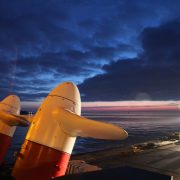Tocardo Acquires the Largest Tidal Array in the World
Tocardo has come to an agreement on the acquisition of the 1.25MW Oosterschelde Tidal Power Plant, the largest tidal array in the world installed on the Dutch icon Oosterscheldekering. The acquisition follows the successful technical due diligence phase during September 2020. The project is an important step for the global tidal energy sector and for our clean energy future.
The Oosterschelde Tidal Power Plant consists of five T-2 tidal turbines in one of the sluice gates of the Oosterschelde storm surge barrier, with the potential of scaling up. It serves as an international showcase for the tidal energy sector and climate adaptation solutions, combining clean energy production with existing infrastructures and making efficient use of scarce land area.
“At Tocardo we are looking forward to taking this unique project forward to the benefit of the local area in terms of jobs, supply chain development and making an impact to the net zero targets. This exemplar project will be run as a R&D facility and shop window for similar global developments which provides significant export opportunities” – Andries van Unen, CEO of Tocardo.
The timing of the transaction couldn’t be better for the company, especially now that national and local politicians are paying renewed attention to the potential of energy from water in The Netherlands. Dutch Minister Wiebes (Economic Affairs and Climate) has a roadmap to electricity from water in 2030 drawn up, which should be ready before the end of this year.
Tidal Stream Power Generation
Tidal energy is reliable and predictable, and therefore offers flexible baseload energy that powers households when the wind doesn’t blow and the sun doesn’t shine. Beside a significant reduction of CO2 emissions, tidal energy also contributes to a reduction in the emission of all other types of greenhouse gas, such as methane (CH4) and nitrous oxide (N2O). These gases are released during the combustion of fossil fuels, such as coal, oil, and natural gas, to produce power. Dutch technology developers estimate the technical potential for tidal energy in the Netherlands at 150-250 MW.
Oosterschelde Tidal Power Plant
The entire Oosterschelde Tidal Power Plant consists of five T-2 tidal turbines supplied & designed by Tocardo. These turbines are installed on a single hydraulic lift frame designed, constructed and supplied by Huisman in late 2015. Commissioning was completed with commercial full operation commencing in August 2016. Despite the limited possibilities as a result of the global COVID 19 outbreak, constructive consultations have been held with the parties involved to create a broadly supported solution surrounding the preservation of the installation in the future. The management of Tocardo is therefore grateful to all parties involved for their constructive attitude shown during this period.
The Project
The completion of this deal has cost a lot of effort over a long period of time, which is testament to the work put in behind the scenes by the Administrators, Tocardo and Rijkswaterstaat (operator of the Delta Works Barriers). Tocardo also received support from Dutch Marine Energy Centre (DMEC) in helping to present the case for preserving the project.
About Tocardo
Tocardo is fully owned by HydroWing Ltd. and QED Naval Ltd. This tripartite, collaborative partnership brings together decades of multi-sector expertise as well as a blend of well tested, complementary products. The joint venture provides a truly end to end service with a spectrum of turbines, foundation systems, marine operations, as well as design, support and service expertise. Tocardo is one of the world’s leading tidal turbine developers renowned for the robust and reliable turbines resulting from a development history spanning the sectors entirety, over twenty years ago, and the largest portfolio of projects operated by any developer in the sector.
Jeremy Smith, MD QED Naval: “This is an amazing opportunity for Tocardo to demonstrate its wares and capabilities. It is also a great platform to introduce further innovations to improve the performance of the turbines and reduce costs. All this whilst producing clean renewable energy into the Dutch electricity grid and generating revenue to sustain the business allowing it to grow rapidly. The size of the prize is significant in Holland but massive when put in the context of a global market opportunities this project opens up.”
Richard Parkinson, MD HydroWing: “Our main objective in taking over the operation of the OTP project is to gain an understanding of how the turbines can be developed and to inform financial models for integration into commercial projects worldwide. This platform is an excellent test bed to develop the turbines while maintaining low OPEX and informing future design developments. Well done to our CEO Andries van Unen for making this complex deal happen.”
Britta Schaffmeister, CEO DMEC: “This marks an exciting stepping stone for the tidal energy sector. Now home to the world’s largest tidal array, the Netherlands is becoming a true frontrunner in harnessing the power of water. Lessons learned here will prove instrumental for more game changers in tidal energy.”

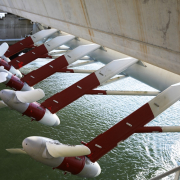
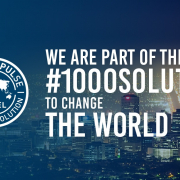
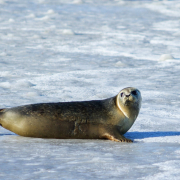
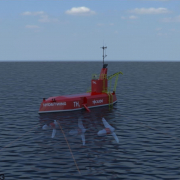 HydroWing Ltd
HydroWing Ltd